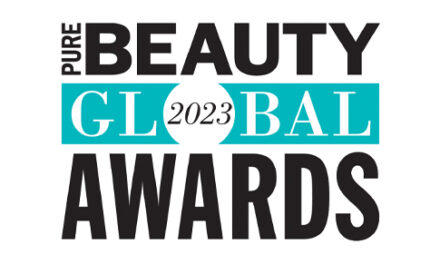Encapsulation Technology: Revolutionizing Fine Fragrances
Image used for illustrative purposes only
In the dynamic and innovative realm of fine fragrances, encapsulation technology stands out as a revolutionary advancement. This cutting-edge technique Encapsulation offers a myriad of benefits that enhance both the performance and sustainability of fragrance products, making it a pivotal tool in the future of the beauty industry. This article explores the intricacies of encapsulation technology, its numerous benefits, key innovations, and the challenges faced by manufacturers in harnessing its full potential. Welcome to the future of fragrance, where science meets art in the most exquisite way.
In the ever-evolving world of fine fragrances, encapsulation technology is emerging as a game-changer. This innovative approach involves encasing fragrance oils in microscopic capsules, offering numerous benefits that enhance both the performance and sustainability of perfumes.
Encapsulation technology, also known as microencapsulation, involves coating fragrance molecules with a protective shell. These capsules can range in size from 1 micrometer to several millimeters and are designed to release their scent in response to specific stimuli, such as heat, moisture, or friction.
The benefits of encapsulation technology are manifold. Firstly, it allows for a controlled and prolonged release of fragrance, ensuring a long-lasting scent. This is particularly beneficial for products like fabric softeners and personal care items, where sustained fragrance is desired. Secondly, the protective shell shields the fragrance oils from external factors such as light, air, and moisture, preserving their integrity and extending their shelf life. By encapsulating fragrance oils, manufacturers can achieve higher concentrations of active ingredients, resulting in more intense and long-lasting scents.
Sustainability is another key advantage. Many encapsulation technologies are designed to be biodegradable and environmentally friendly. For example, Givaudan’s PlanetCaps™ technology is biodegradable and bio-sourced, aligning with the growing demand for sustainable beauty products. Innovative applications of encapsulation technology include creating water-based fragrances that do not contain ethanol or other harsh solvents.
As consumer preferences shift towards natural, sustainable, and high-performance products, encapsulation technology is set to play a crucial role in the future of fine fragrances. Brands are continuously exploring new methods and materials to enhance the efficacy and environmental impact of their products. Encapsulation technology is not just a scientific advancement; it’s a step towards redefining the fragrance experience, offering consumers innovative, long-lasting, and eco-friendly options.
Key innovations in encapsulation technology have driven this revolution forward. Microencapsulation techniques involve enclosing active ingredients within a protective coating, forming tiny capsules. Techniques like spray drying, coacervation, and emulsion-based methods have been refined to improve stability and controlled release. At the nanoscale, nanocapsulation offers enhanced therapeutic efficacy and specificity. Nanocarriers like liposomes, dendrimers, and polymeric nanoparticles improve drug solubility, stability, and bioavailability. The development of new materials such as nano-coatings and bio-based polymers has enhanced the functionality and sustainability of encapsulated products.
Increasing consumer awareness and demand for natural, sustainable, and high-performance products have driven the development of advanced encapsulation technologies. Progress in material sciences, nanotechnology, and computational modelling has enabled the creation of more efficient and effective encapsulation systems. Stricter regulations on product safety, stability, and environmental impact have pushed industries to adopt encapsulation technologies for better compliance. The competitive nature of industries like pharmaceuticals, food, and cosmetics has driven companies to innovate and differentiate their products through advanced encapsulation techniques. The global push towards sustainability has led to the development of biodegradable and eco-friendly encapsulation materials and methods.
Notable examples of encapsulation in fine fragrances include Lupearls by Luzi, Microcaps AG’s microencapsulated fragrances, Clean Reserve’s H2Eau, and Givaudan’s PlanetCaps™ technology. However, challenges such as volatility, compatibility, controlled release, stability, cost, and environmental impact need to be addressed. By overcoming these obstacles, manufacturers can create more effective, long-lasting, and sustainable fragrance products.
Encapsulation technology in fine fragrances presents significant opportunities and challenges, shaping the future of the industry through innovation and sustainability. This advanced technology is not only enhancing product quality but also meeting the growing consumer demand for eco-friendly and high-performance fragrances.

Author : Sheela Iyer
sheela@cosmetech.co.in
Sheela Iyer is an observer of the Indian Cosmetics & personal care industry and the editor of ‘Cosmetech’. She regularly video interviews industry experts on Cosmetech TV and has her fortnightly podcast ‘Cosmetics Today’
Subscribe to our free newsletter to read the latest news and articles before they are published.









Subscribe To Our Newsletter
Join our mailing list to receive the latest news and updates from The Cosmetics industry
You have Successfully Subscribed!